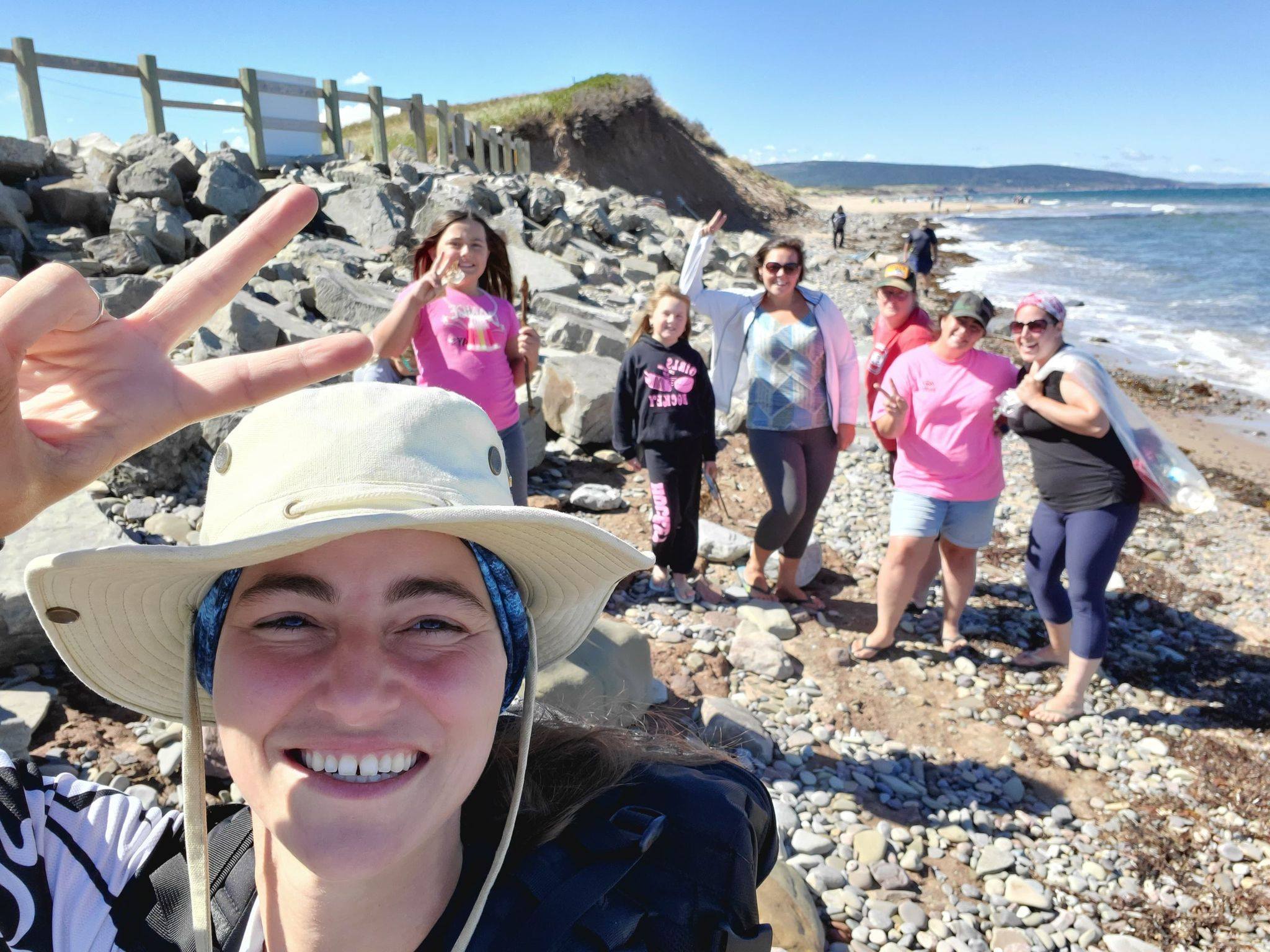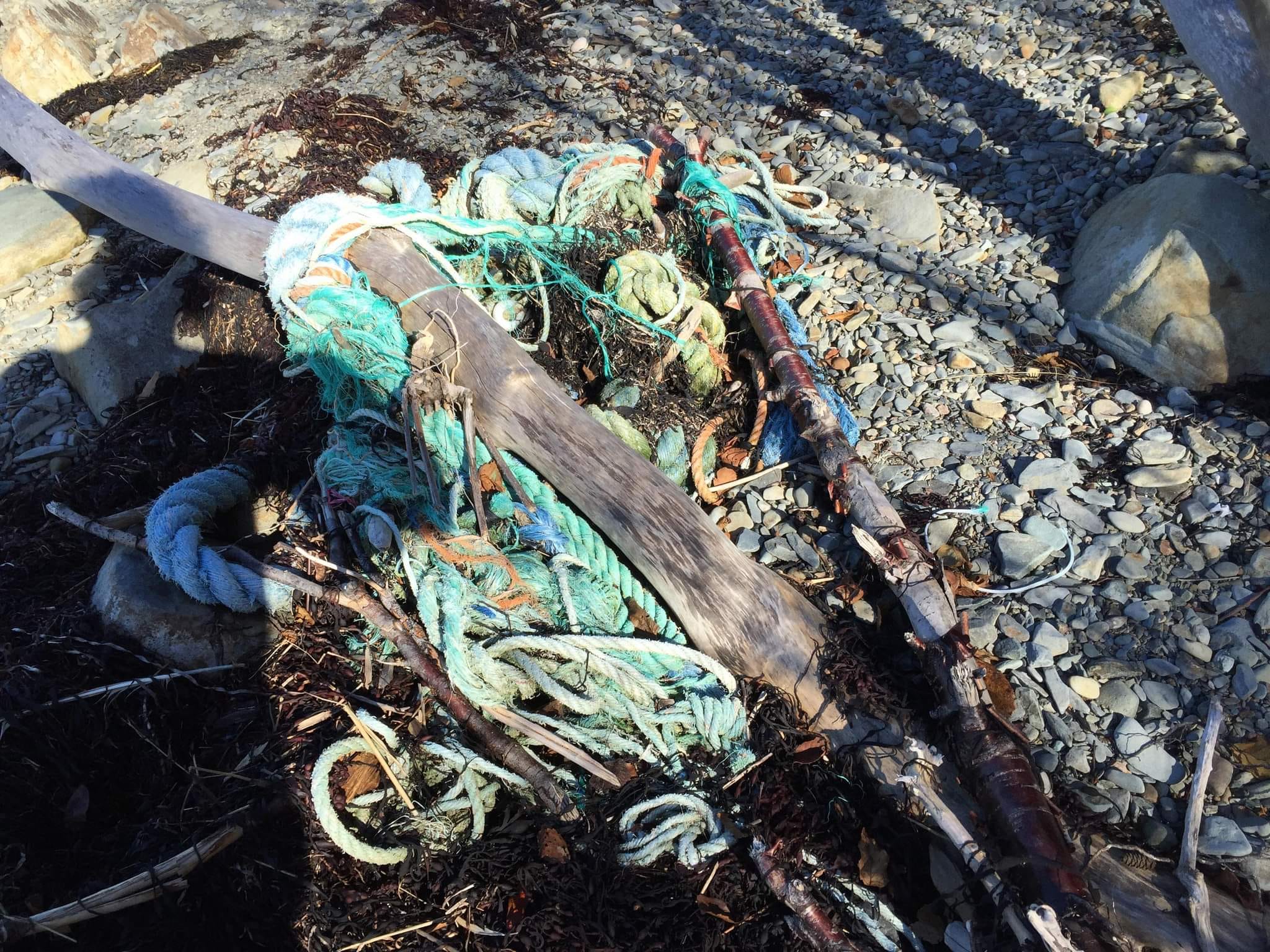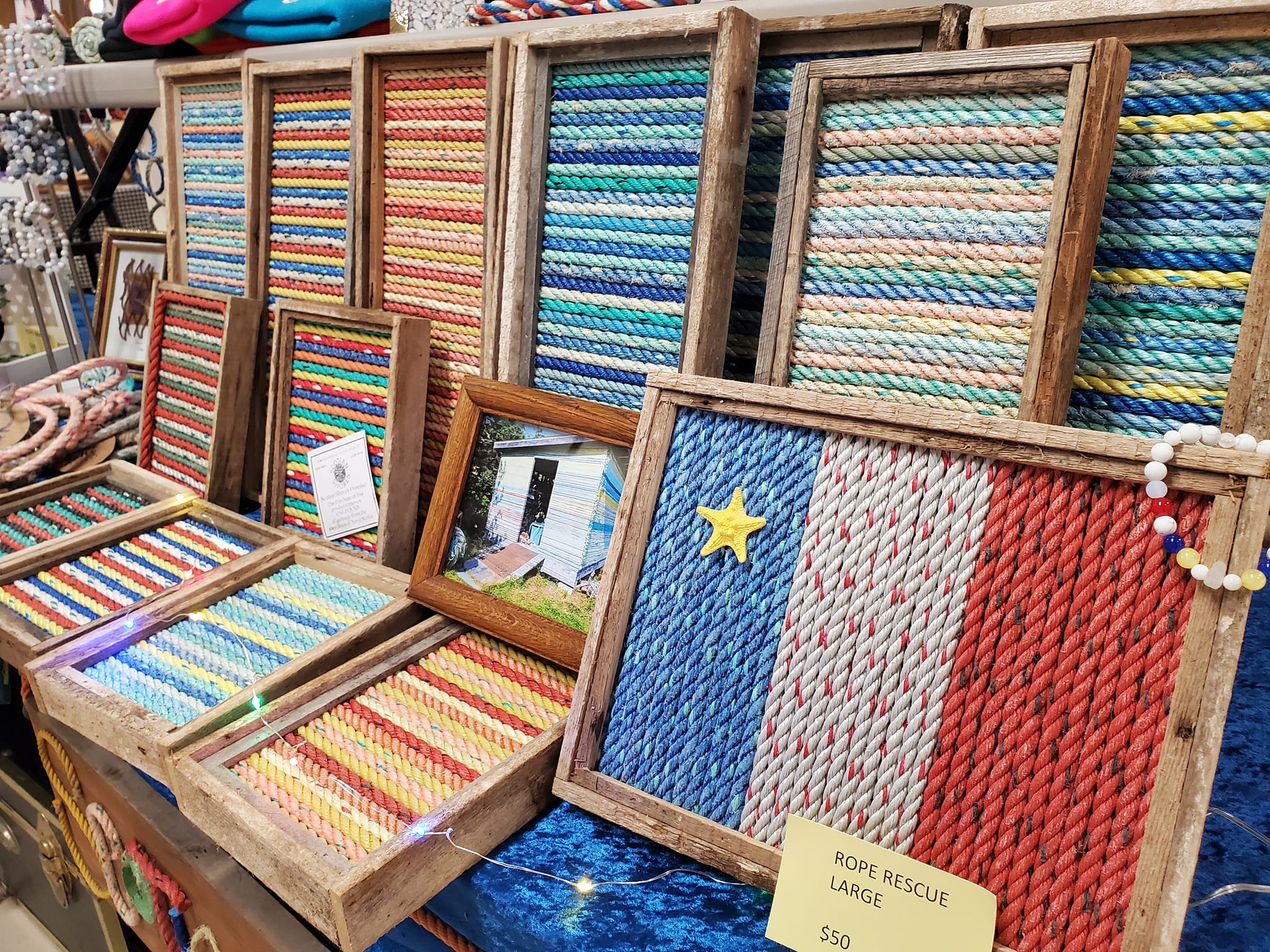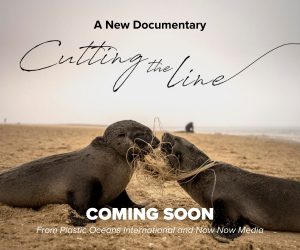Filling A Need Within Their Community
With more than 8,000 miles of coastline, it is little wonder that Nova Scotia is well-known for having some of the most beautiful beaches in Canada. On the Eastern Shore, in particular, the white-sandy beaches more closely resemble tropical idylls than the rugged cliffs of other areas of Canada.
As is so often the case, however, tranquil vistas called to mind by the words Nova Scotia are increasingly becoming less of a tranquil safe haven for birds and wildlife, and more of a harbour for the oceans’ greatest blight: plastic pollution.
Scotian Shores Beach and Shoreline is an organisation centred around organising shoreline cleanups and building community awareness around the plastic pollution crisis. They are among the newest members of Plastic Oceans International’s BlueCommunities initiative, representing Eastern Passage, Canada.

Scotian Shores founder Angela Riley (foreground) is on the job with her team keeping their community clean.
They’re doing amazing work within their community, which also awoke the interest of Natasha Tucker, Executive Director of Plastic Oceans Canada.
“When we came across Scotian Shores we knew that this young project spoke to the essence of what the BlueCommunities concept and family is all about,” said Tucker. “We always try to be aware of what is happening on the ground, even in a country as big as Canada, which by some measure has the longest coastline of any country on earth, and their efforts certainly stood out to me.”
For her part, Angela Riley, founder of Scotian Shores, explains that the genesis of the organisation sparked from the simple need to do something to protect the coastline of Nova Scotia: “During the pandemic I wasn’t able to work and spent a lot of time at the shoreline with my two children. Every day we would go to the same beach and more garbage was washing ashore. I started picking on my own and organized a large cleanup initiative in Eastern Passage where over 80 people attended.”
At this point it became apparent that people in the community wanted to help, but that they had no idea where to begin. Hence, in the summer of 2020, Scotian Shores was born to help lead people, and to assist in maintaining the wellbeing of Nova Scotia’s waters in any way possible. And this year, Scotian Shores has teamed up with Plastic Oceans International’s BlueCommunities initiative to join a worldwide network of organisations empowering local people to make a difference.

Just a taste of what the team at Scotian Shores comes across on their beaches.
Scotian Shores’ cleanups take place all over Nova Scotia: the group organises a lot of large scale cleanups, which happen alongside the work of singular pickers who share their adventures in order to inspire others.
“We work with good people,” says Riley, “we come together to achieve a bigger goal, and we stay positive in the face of what can seem like an insurmountable problem.”
Indeed,a great deal of the strength of Scotian Shores work derives from the fact that their work pivots around people power: they have a unique ability to galvanise and support the people of the Eastern Passage community – and beyond – to work together to make a difference. To date, they have removed over 70,000 pounds of rubbish from the shorelines; an astounding amount considering the short time they have been working.

Beautiful repurposing of rope line collected by Scotian Shores.
“We work most closely with the Eastern Passage community, because it is the closest to us, but we believe in the interconnectedness of every community in Nova Scotia,” said Riley. “In the same way that the waterways of the globe exist as one body, so too are the people of Nova Scotia, and as such, we have a joint responsibility to the waters.”
It is this buoyant attitude and belief in the interconnectedness of things which makes the partnership with the Blue Communities program so fortuitous. In a world where it seems like plastic pollution is a never ending issue, the refreshing energy of organisations like Scotian Shores – who refuse to sit back and do nothing simply because they cannot do it all – is radically necessary.
Riley said: “Of course, we know that the clean-ups are not going to solve the plastic pollution problem; we need accountability and policy change from the government too. But, ultimately, we all play a part in making sure the future is bright, and being part of a larger, world-wide community of good humans means we can become more connected, and achieve more.”
Because, at the end of the day, when a small shoreline cleanup movement in the Eastern Passage becomes part of a family with a united goal, the wave becomes tidal, and breaks ground where it is needed most.
Shannon Collins is based in the Americas and covers environment and sustainability for a variety of publications as part of the journalism team at Ninth Wave Global.

